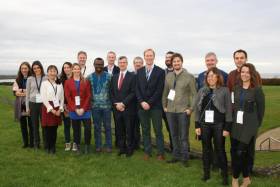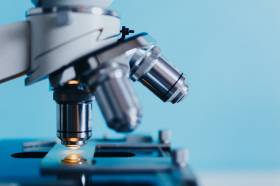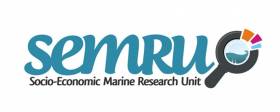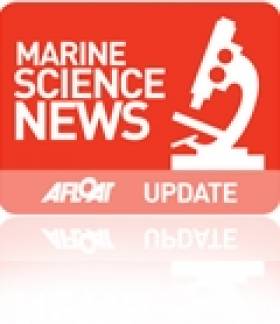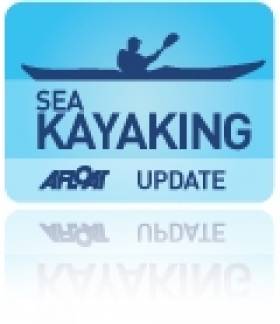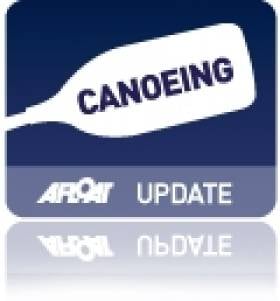Displaying items by tag: symposium
Symposium Celebrates 10 Years Of Marine Economics & Policy Research
The 10th Annual Marine Economics Policy Research Symposium, recently held at the Marine Institute’s Oranmore headquarters, provided a forum for researchers, scientists, economists and policy makers to present and exchange views on a wide range of topics.
Organised by the Socio-Economic Marine Research Unit (SEMRU) of NUI Galway’s Whitaker Institute with the support of the Marine Institute, the event was a space to discuss issues from the public perceptions of the oceans and marine spatial planning to marine and coastal tourism.
The 10th annual symposium also showcased the international collaborations that have been established between SEMRU and partner institutes through a number of EU projects.
The Marine Institute’s new chief executive Dr Paul Connolly welcomed the researchers, noting that SEMRU “has played a vital role in establishing a sustainable method of valuing our oceans”.
He added that the unit has “also undertaken complex research initiatives across a broad spectrum of areas, such as fisheries, maritime transport tourism and natural capital accounting”.
“Today, economic evidence is available to show the value — market and non-market — of our ocean resources with Ireland's marine sector recognised by Government and the State as an important national asset,” he said.
SEMRU presented the latest economic figures to Government in June 2019 as part of the Our Ocean Wealth Summit.
The latest figures show that Ireland’s ocean economy had a turnover of €6.23 billion and provided employment for 34,132 people (full time equivalents). The total direct and indirect value of Ireland's ocean economy is estimated by SEMRU to be in excess of €4.2 billion GVA (Gross Valued Added), equivalent to 2% of GDP.
Ireland’s integrated marine plan, Harnessing Our Ocean Wealth, outlines the Government’s target to increase the turnover from our ocean economy to exceed €6.4 billion by 2020 and double its value to 2.4% of GDP by 2030.
The symposium welcomed speakers from the Marine Institute; NUI Galwa; Department of Housing, Planning and Local Government; Údarás na Gaeltachta; Galway-Mayo Institute Technology; Trinity College Dublin; Queen’s University Belfast; and ABPmer.
Top women’s surfer turned marine biologist Dr Easkey Britton was among the international list of speakers whose presentations are available to download from the SEMRU website HERE.
Researchers Talk Ocean Science At Marine Institute Symposium
The development of an app to help fishermen target areas with fish for which they have quota and avoid fish for which they don’t is just one of the innovations being developed by researchers at the Marine Institute.
The app, presented by Dr Julia Calderwood, is part of the EU-funded DiscardLess project, helping to ensure that the discarding of non-quota fish catches is phased out under the Common Fisheries Policy.
It is just one of many research projects that were presented at the Marine Institute’s Research Symposium on Thursday (24 October).
Seventy researchers from across the institute gathered to present their work, to brainstorm, and to identify ways to work better together.
Researchers presented short overviews and took questions on their work and on the future direction of research at the Marine Institute. There was also a poster session giving further overviews of research.
The institute says its initiative to try to integrate better research across areas such as fisheries science, climate change, oceanography, fish health, seafood safety and ocean chemistry is a critical goal of the its strategy, Building Ocean Knowledge, Delivering Ocean Services.
The Research Symposium featured presentations from principal investigators to PhD students on research projects that support important policy areas for Government. The outputs from a project tracking the migration patterns of bluefin tuna, for example, support key policy areas for the Department of Agriculture, Food & the Marine.
The fate, impact and new approaches to persistent pollutants in the marine environment were also addressed and the outputs of this work support key policy areas for the Department of Housing, Planning and Local Government.
Research that supports the seafood sector was addressed with food safety issues around marine biotoxins being presented. Research into the genetic basis for natural starvation in wild Atlantic salmon was presented which will, through manipulation of diet and temperature, help to reduce the time taken for farmed fish to reach a stage of maturity where they can go out to sea cages, thus reducing grow-out time and costs for the salmon farmer.
Research and innovation is a key component of the Marine Institute’s Strategic Plan 2018-2022, and is aligned to the provision of scientific advice and services.
New Marine Institute chief executive Dr Paul Connolly explained the thinking behind the Research Symposium: “The Marine Institute provides essential scientific evidence and advice to Government and to stakeholders to ensure that we are sustainably managing our marine resources and our extensive maritime territory, which is about 10 times the size of our landmass.
“Our research is central to providing the knowledge we need to inform policy and to address challenges such as climate change and ocean pollution while helping to build sustainable maritime sectors such as aquaculture, ocean renewable energy and marine and coastal tourism.”
The Marine Institute Research Symposium is intended to be an annual event, forming part of the efforts being made to deliver knowledge and services that are safeguarding our ocean resources and supporting a healthy and sustainable ocean economy in Ireland.
Galway Hosts Atlantic Action Plan & Marine Economics Conferences
#BlueGrowth - Galway's Marine Institute will host the third Irish national event of the support team for the Atlantic Action Plan on Thursday 24 November.
Under the theme of ‘Linking the Atlantic Strategy and Current Funding Opportunities’, this event is aimed at anyone with an interest in developing projects related to the marine and maritime sectors in line with the Atlantic Action Plan. The official event website has more details.
Also on 24 November, Galway’s Glenlo Abbey Hotel is the venue for the seventh Marine Economics and Policy Research Symposium, hosted by the Socio-Economic Marine Research Unit (SEMRU) of NUI Galway’s Whitaker Institute.
This free event will provide participants with an update on a wide range of policy topics related to the marine sector in Ireland, with a particular focus this year on the valuation of marine ecosystem services benefits to society.
Speakers will include Prof Nick Hanley of the Marine Alliance for Science and Technology Scotland (MASTS); Dr Ronan Lyons of Trinity College Dublin; and Dr Kathrine Skoland of International Research Institute of Stavanger, Norway.
More information on the day will be circulated in the coming weeks, and early registration is available HERE.
Registration Open For International Sea Trout Symposium
#MarineScience - The second International Sea Trout Symposium will take place in Dundalk, Co Louth from 20-22 October 2015.
Targeted at scientists, managers and other fishery stakeholder interests in the public and private sectors, the central aim is to promote the wider application of an evidence-based approach to the future management and regulation of the sea trout and to ensure that its often very special needs become fully integrated into catchment management plans and environmental impact assessments.
This major event will build on the success of the first International Symposium on the ‘Biology, Conservation & Management of Sea Trout’ held in Cardiff, Wales in 2004. Its overall objective will be to promote the application of the latest science to the better management of sea trout stocks and their associated fisheries.
It will consider developments since the previous symposium, highlight the implications of the strategic gaps in our knowledge that currently limit our ability to manage the resource effectively and review priorities for future investigation.
The symposium is aimed at fishery scientists, managers, policy makers and other interested parties. It is planned to provide practical guidance to assist managers and regulators in the sustainable management of the sea trout resource and to ensure that they are fully integrated into any assessment of the impact of other policies, regulations and developments affecting their aquatic environment. While primarily focused on migratory sea trout, it will include non-migratory trout and other anadromous species where relevant.
Symposium topics will include:
- Understanding Anadromy
- Populations & Management
- Movements & Migration
- Ecology & Behaviour
- Monitoring & Surveillance
- Threat Assessment
- Future management and research
Rates for the symposium start at €70 for the daily attendance package, with a basic three-day delegate package priced at €230 and the full package (including the gala dinner and a copy of the proceedings) at €330. A student delegate package for PhD and MSc candidates is available for €150.
The closing date for registrations is 4 September 2015. Details of the programme, accommodation and travel are available at the Sea Trout Symposium website.
Inishowen Sea Kayak Symposium This Weekend
#SeaKayaking - The East Inishowen Sea Kayak Symposium takes place this weekend from 26-28 April.
Hosted by Just Kayak at the shorefront in Moville, Co Donegal, the weekend costs €130 for all coaching and guides, plus two nights self-catering bed and breakfast plus lunches and an evening meal.
Friday evening will feature a talk from Elaine 'Shooter' Alexander, discussing her epic circumnavigation of Ireland by sea kayak two years ago that we followed here on Afloat.ie.
Saturday will be a full day of coaching and guided trips around the Inishowen peninsula, followed by an evening of talks from guest coaches.
The final day on Sunday features a choice of different coaching sessions - and for something a little different, chef Brian McDermott will give a demonstration of outdoor cooking which might prove handy on your next kayaking trip.
For more details and booking info visit the Just Kayak website.
In other sea kayaking news, a Plymouth couple are hoping to be the first husband-and-wife team to kayak around the British and Irish coasts.
As The Herald in Plymouth reports, Andy and Jane Morton from Bere Alston left Plymouth aboard their double kayak Persey earlier this month beginning their five-month challenge for the RNLI and a local MS charity.
You can follow the couple's progress via their website HERE.
Sea Kayaking Symposium in Mayo this October
The Irish Sea Kayaking Association (ISKA) will host its annual symposium on 8-9 October 2011 in Mulranny, Co Mayo.
The activity-filled weekend at the Mulranny Park Hotel will include training workshops, peer paddles and talks by leading kayaking experts.
Delivering the keynote speech will be Jasper Winn, author of Paddle: A Long Way Around Ireland, who will use a mix of digital slides, video clips and live music to illustrate his account of his trip around the country by kayak.
For more details visit the ISKA website at irishseakayakingassociation.org.



























